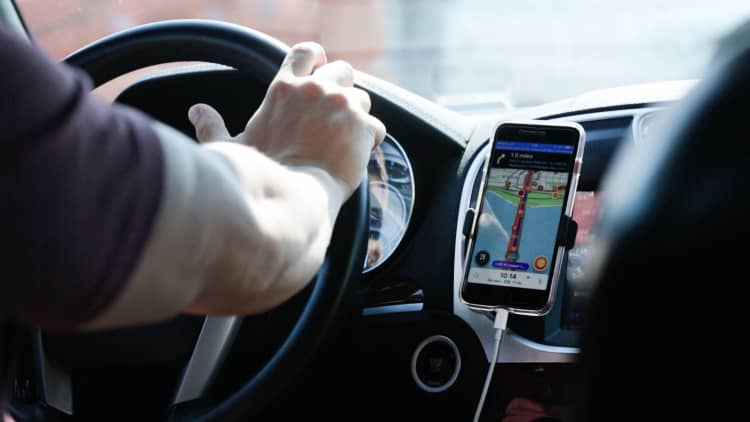
Uber will have a hard time making a profit in its core driving business at least in the near term, Wedbush Securities analyst Dan Ives said Thursday.
In initiating coverage ahead of this month's initial public offering, Ives argued that Uber will need to set itself apart from rival rail-hailing services like Lyft in order to satisfy investors.
Profitability at Uber's standard driving service is going to be "an Everest uphill battle," said Ives, whose firm put an outperform rating on the company with a price target of $65 per share. Instead, he said Uber's growth will come from its other ventures such as its Uber Eats food delivery service and shipping platform Uber Freight.
Uber is offering 180 million shares at $44 to $50 apiece. On a fully diluted basis, its valuation could top $91.5 billion, making it the biggest public offering since Alibaba. Lyft debuted on Wall Street in late March, gaining about 8% on its IPO day. Since then, Lyft shares as of Tuesday were about 18% below their $72 offering price.
Ives said Uber has established itself has the "clear No. 1 player" in rides, estimating its core driving service is worth about $75 billion. He expects the service could make a profit in five to seven years. "What you're really trying to do is put more of a fence around your backyard in terms of Uber versus a Lyft," he said in a "Squawk Box" interview. However, he added that investors want to see whether Uber goes beyond rides and becomes the "Amazon of transportation" by locking in consumers through its other services.
Like Amazon, Uber has prided itself on diversifying beyond its core driving service for which it's best known. According to a New York Times report, Uber has been comparing itself to Amazon during its pre-IPO roadshow to justify its losses as it expands. For years, Amazon plowed all the money it made back into the business on the promise of future success, which did in fact happen for the e-commerce giant.
Tom White, a senior research analyst at D.A. Davidson, is "resisting" the narrative that Uber can be the next Amazon. White, speaking in the same CNBC interview as Ives, said he does not see an opportunity for huge diversification in transportation as there is in retail.
"With Amazon, it was pretty clear early on it was a drastically better consumer experience when it came to buying things online," said White, who started coverage with a neutral rating on Uber and a $53 per-share price target.


